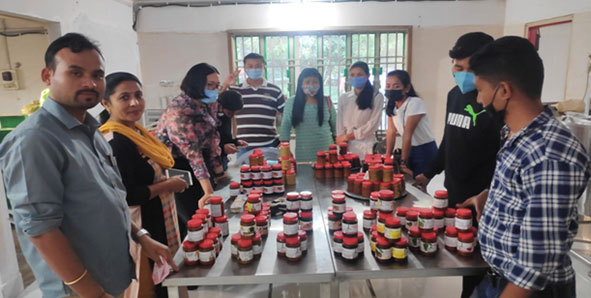GUWAHATI, 23 Nov: Ten participants from Namsai district of Arunachal Pradesh took part in a technology-based entrepreneurship development programme on ‘Establishment of food processing unit’, organized by Jorhat (Assam)-based Rain Forest Research Institute at the Indian Institute of Entrepreneurship (IIE) here in Assam from 8 to 20 November.
The programme was funded by the National Mission on Himalayan Studies under the project, ‘Improving the traditional homestead to a viable agro-forestry system’ for biodiversity conservation and inclusive growth of the Khampti tribe of Namsai district.
Project head Dr Bhaskarjyoti Saud sensitized the participants to various food processing techniques, and the requirements for establishing a processing unit.
The training programme featured demonstrations on a number of food processing equipment and machinery, besides hands-on training under the guidance of entrepreneur Malamoni Hazarika and IIE project executive Rupam Das. Recipes for juice, pickle, jam, jelly and chutney were prepared under their guidance.
Classes on personal hygiene, hazard analysis and critical control points, food processing techniques, packaging methods, online marketing, etc, were also held.
Motivational speaker Deepankar Bhattacharya delivered an encouraging speech to boost confidence among the trainees with regard to their future in this sector. Pankaj Sharma of the IIE spoke about the “licensing required for establishment of a food processing unit.”
Software developer Syed Mohsin Raza taught the way of establishing an online commerce platform to facilitate the sale of marketable products globally.
The participants were also taken on an exposure visit to a cottage industry owned by Malamoni Hazarika of Basisthachal, Guwahati, to study the work atmosphere, avenue and overall functioning of an MSME food processing unit.
Biraj Das and Neera Das of the IIE illustrated the correct way to prepare a detailed project report for availing loans from banks.
A hands-on training was also conducted to help the trainees acquire the necessary skills to be able to establish their own food processing units.
Certificates were later distributed to the trainees.



